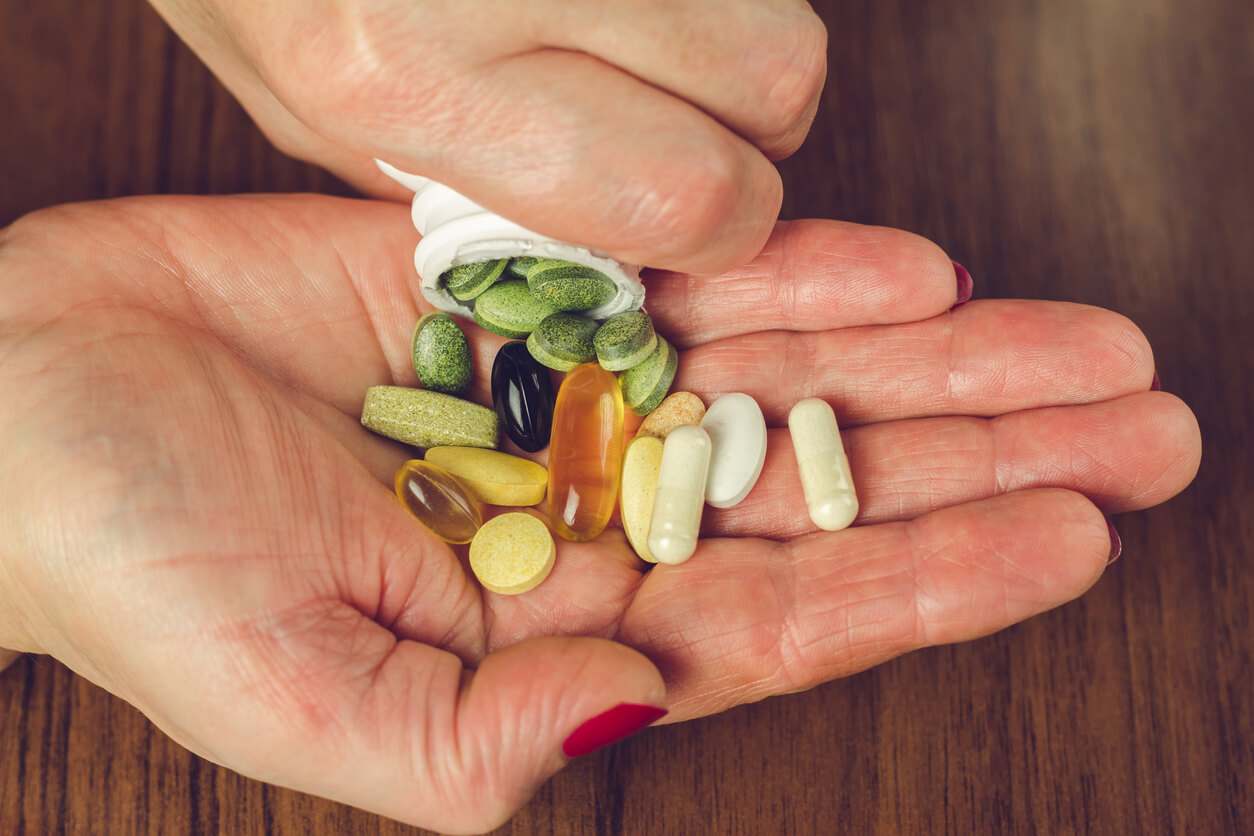The Functional Medicine Approach to ADHD
Medication and behavioral therapy are the current standard for comprehensive and effective ADHD treatment, but studies also show that ADHD has strong genetic and environmental influences.
Nutritional status, oxidative stress, neurotransmitter and endocrine dysregulation, neurological abnormalities, history of physical and emotional trauma, and environmental toxicity have all been implicated in ADHD (1).
Rather than focus solely on a child’s diagnosis, a functional medicine approach to ADHD will look at possible triggers. In most children with ADHD, they share a collection of environmental, internal, or genetic factors which we can modify to help better support their ability to self-regulate.
ADHD does not doom your child to a life of struggling and underachievement. Rather, some of society’s greatest innovators have neurodivergent minds, and that includes ADHD. Some foods, behaviors, and toxin exposures can hinder a child’s ability to regulate their executive functions, and you’ll learn what the current research has to say about these triggers.
Related: 10 Strategies to Address ADHD Without Medication
ADHD Causes, Treatment, and Environmental Triggers
Between 2001 and 2015, the prevalence of ADHD medication increased at 3% and 13% per year for children and adults, respectively (1). There remains some controversy over whether ADHD medication makes a lasting difference in performance or achievement over the long-term (2).
Dozens of factors influence our brain chemistry, including the foods we eat, which environmental toxins we’re exposed to, how much sleep we get, and how our immune system reacts to allergens–both dietary and environmental.
A “Western” Diet
Nutritional deficiencies from a “Western” diet, food insecurity, artificial food additives and dyes, and food sensitivities and allergies have all been implicated in ADHD. Processed foods are devoid of essential nutrients necessary for optimal cognitive function.
Magnesium, B vitamins, and vitamin D are among the key nutrients most lacking in children with ADHD. In a 2016 study on patients with ADHD aged 6 to 16 years, “72% of the children were found to be deficient in magnesium and there was a significant correlation between hair magnesium, total IQ, and hyperactivity” (3).
In another study, high consumption of sugar, candy, soft drinks, and low intake of fatty fish (i.e. salmon, mackerel) was associated with a higher prevalence of ADHD diagnosis (4).
Read more: Real Nutrition for Healthy Kids
Excess Sugar
Children with ADHD may be sensitive to sugar, artificial food dyes, and additives. Processed foods with high amounts of added sugars spike blood sugar quickly and result in a crash shortly after, which stimulates adrenaline, causing jitteriness, and results in feelings of inattentiveness and drowsiness (5).
Despite all childrens’ need for healthy, quality nutrition, foods aggressively marketed toward children are laden with sugar, artificial sweeteners, and processed carbohydrates, which is the least stable source of fuel that can send even a neuro-typical brain into a chaotic energy spiral.
Microbiome Health
The gut is ground zero for many imbalances, including ADHD symptoms. Our complex microbiome–influenced by allergies, stress, and toxin exposure–manufactures the neurotransmitters your child’s brain needs.
Neurotransmitters such as serotonin are manufactured in the gut by “good” bacteria like Lactobacillus species. A decrease in microbial diversity, or an overgrowth of opportunistic pathogenic bacteria could disrupt this gut-brain communication (6). Without proper serotonin production and function, a child with ADHD will have poorer impulse control and difficulty concentrating.
Imbalances like small-intestinal bacterial overgrowth (SIBO) and candida overgrowth in childhood or as an adult are linked to chronic conditions like obesity and IBS, in addition to ADHD (7).
Leaky Gut
Intestinal permeability–also called a leaky gut–plays a role in neuroinflammation. Neuroinflammation occurs when the brain’s immune system is activated following an immune challenge which often originates in the gut.
Inflammatory foods like processed carbohydrates, refined sugars, and dairy can irritate the lining of the gut and initiate an inflammatory immune response. This can later progress to an abnormally permeable intestinal lining, or leaky gut.
Neuroinflammation is actually at the root of many diagnoses in integrative medicine. Inflammation produced in the body can interfere with the production of neurotransmitters like serotonin, which the brain needs to maintain focus and attention.
Excitotoxins
Substances considered excitotoxins are most often artificial food additives like FD&C yellow, MSG, aspartame, or glutamate (8).
Excitotoxins are substances that overstimulate neuron receptors, which can worsen ADHD symptoms. Neuron receptors facilitate brain cell communication and–upon exposure to excitotoxins–fire more rapidly than normal, which can lead to hyperactivity, impulsivity, and difficulty concentrating.
Children with ADHD are often sensitive to excitotoxins and their effect on brain chemistry.
Sleep
People with ADHD are more likely to experience shorter sleep time, problems falling asleep, and staying asleep. It’s often that people with ADHD wake still feeling tired or groggy (9).
Quality sleep is one of our strongest natural mediators of inflammation, immune function, and brain health.
Poor sleep results in endocrine dysfunction, including epinephrine and norepinephrine dysregulation (10). Both low and high levels of norepinephrine and epinephrine are associated with ADHD. These are the adrenaline hormones that help regulate attention.
Improving sleep quality and exercise are two very critical components of norepinephrine and epinephrine imbalance.
Exercise
Kids often have trouble sitting still for long periods of time, and may react negatively with outbursts or behavior issues. It turns out, providing outlets for movement benefits behavior on a physical and chemical level.
A recent study looked at the effects of regular physical activity on cognitive function and attention. Researchers found that an 8-week yoga class twice a week for 40 minutes significantly improved childrens’ scores on cognitive inhibition and attention tests (11).
In addition, exercise also influences glutamate and GABA balance in the brain and body, two neurotransmitters responsible for regulating brain activity (12).
Electronics
For someone with ADHD, our modern culture of device overload can result in overstimulation and neurotransmitter dysregulation. Browsing social media, and many other types of applications on wearable tech, are designed to keep the user scrolling due to their effect on dopamine.
Dopamine is the body’s primary neurotransmitter responsible for motivation and learning. Low dopamine will result in inattention, forgetfulness and poor impulse control. High dopamine, on the other hand, makes the mind race and increases sensory processing issues and excitability.
Identifying Personal ADHD Triggers
When working with an integrative medicine provider at CentreSpringMD, we test for the above triggers using a combination of urine tests, blood tests, finger prick, or stool to identify key issues.
If medication is the right choice for you or your child, we also have genetic testing available to help determine which type of medication is right for him or her.
We monitor success and results using the online Gibson test, feedback from teachers and family, and maintain a close collaboration with psychologists and/or psychiatrists.
We do mental health differently. Learn more about our exclusive cognitive and behavioral performance program, Brain Boost.
What Supplements Help ADHD?
Diet and nutritional status play a major role in brain chemistry. Given that many children struggle to get a well-rounded diet of nutrient-dense veggies, quality proteins, and healthy fats, there are many vitamins and minerals their brains may be missing.
It’s always best to prioritize nutrients from whole foods, but supplements can help manage ADHD symptoms by supporting neurotransmitter function, gut health, and inflammation.
Omega-3. About 60% of the brain is made of up DHA, making omega-3 fats absolutely critical for proper brain communication. A lack of these healthy fats strongly correlates with ADHD, in addition to poor immune function and increased inflammation.
Magnesium. Most adults and children aren’t getting enough magnesium for optimal nervous system function. Bioavailable forms of magnesium include magnesium glycinate, or magnesium amino acid chelate.
B vitamins. Vitamin B6 in particular is crucial for producing serotonin, which plays a role in healthy sleep and in proper concentration. Look for a methylated B supplement containing folate and the active form of B12, methylcobalamin. You can find these in Boost, plus magnesium glycinate.
Vitamin D. Almost 40% of the U.S. has less than optimal levels of vitamin D. Spend time outdoors responsibly to get more of the “sunshine vitamin” and include fatty fish, cheese, or fortified milks in your diet.
The Bigger Picture on ADHD Causes
Every child and adult with ADHD is unique. And while there is no one path that will guarantee attentiveness and success for every person, the power is in your hands to identify ADHD triggers. Whether medication is the right choice to manage your ADHD symptoms, following an integrative approach can either increase the efficacy of your medication, or delay the need for medication entirely.
The causes of ADHD in children and adults are diverse and complex, and while there isn’t yet one clear answer, an integrative medicine doctor can help shed light on your personal triggers. Better understanding the underlying causes of ADHD is one step closer to improved attention, happiness, and success for you and your child.
Resources
- https://www.healio.com/news/psychiatry/20180913/adhd-medication-use-increases-over-time-but-variations-exist
- https://www.ncbi.nlm.nih.gov/pmc/articles/PMC4928725/
- https://www.sciencedirect.com/science/article/pii/S1110863015000555
- https://pubmed.ncbi.nlm.nih.gov/28138007/
- https://pubmed.ncbi.nlm.nih.gov/17181902/
- https://pubmed.ncbi.nlm.nih.gov/31744191/
- https://www.ncbi.nlm.nih.gov/pmc/articles/PMC6893446/
- https://pubmed.ncbi.nlm.nih.gov/7854587/
- https://www.ncbi.nlm.nih.gov/pmc/articles/PMC2687494/
- https://www.livescience.com/35629-5-experts-answer-trouble-sleeping-health.html
- https://pubmed.ncbi.nlm.nih.gov/28097075/
- https://pubmed.ncbi.nlm.nih.gov/20722471/

